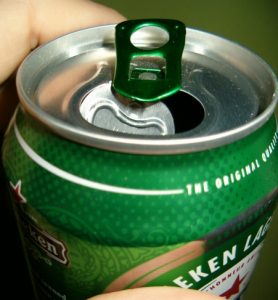“Drunkorexia” Is The New Eating Disorder On College Campuses
 Another eating disorder is on the rise, and this time it also sounds dangerously intertwined with alcoholism.
Another eating disorder is on the rise, and this time it also sounds dangerously intertwined with alcoholism.
It’s called “drunkorexia,” and it’s a phenomenon afflicting mostly college students. The idea is that you starve yourself all day in order to save your calories for a night of drinking. Not only are students doing it in order to avoid the freshman 15, but it’s also a way to get drunk faster.
Normal college behavior or dangerous new fad?
Is this something college kids have been doing for decades, or is it more dangerous than that? Experts say the latter.
The behaviors of drunkorexia have always been a part of college culture, but it became a more mainstream “condition” after a 2011 University of Missouri study revealed that one in about six students were skipping meals so they could drink.
Experts say the dangers are many: not only does drunkorexia mimic the same behaviors as anorexia, but it also includes the risks of heavy drinking–on an empty stomach, at that. Consequences could include everything from alcohol-related arrests, trouble passing classes, sexual deviance and the serious health problems that accompany traditional anorexia.
According to Science Daily, college students should be adequately informed about the dangers of heavy drinking via alcohol education classes, saying, “When students replace their calories with alcohol, they don’t think about the consequences.”
Source: Roundup Daily
 Eating Disorder Self Test. Take the EAT-26 self test to see if you might have eating disorder symptoms that might require professional evaluation. All answers are confidential.
Eating Disorder Self Test. Take the EAT-26 self test to see if you might have eating disorder symptoms that might require professional evaluation. All answers are confidential.